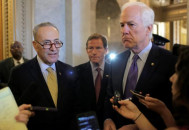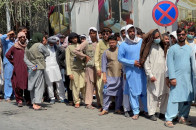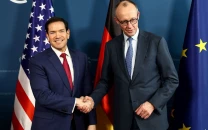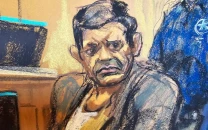We are all Anwar Congo
Mass murder is rather routine in our world. Rarely there is justice, but this film shows human conscience catching up.

The writer is a journalist in Delhi whose work has appeared in The Christian Science Monitor and The New York Times. He tweets @DilliDurAst
The Act of Killing released last year but the world is still talking about it. When you watch it, you can scarcely believe what you see. Anwar Congo shows us how he perfected a method of killing that would produce the least blood. He wraps a steel wire around the victim’s neck, ties the wire to a pole and pulls it from the other end. He then watches how the video looks on television and says he shouldn’t be smiling, his face should look cruel, he shouldn’t be wearing white pants. He’d never wear clothes like that while doing the killings.
But as the two-and-a-half-hour film progresses, we see Anwar Congo moving between his status as a hero of that purge and the guilt-ridden man he is. He tells us about the ghosts that visit his nightmares, and then, rather coldly, decides to show the ghosts in the film he is making. Dressed as though for a carnival, the ghosts brutally kill a dummy of Anwar Congo, as he sits and watches. The ghosts behead him, drink his blood, eat his body parts, leave the remains to rot in a forest. Monkeys come and eat the rest.
Anwar Congo watches coldly because he is past the threshold of dilemma. Should this scene be in the end of the film or the beginning, he wonders. What would be the best way to take control of his narrative? “What I did was wrong,” he admits, “but it had to be done,” he rationalises. What haunts him are the eyes of one of his victims. If only he had closed the eyes before he left.
In trying to come to terms with himself, Anwar Congo goes beyond a dummy self. He gets the real self seated in an interrogation scene. This time, he is playing a communist. He is interrogated and they begin to kill him. His friend and fellow actor blindfolds him, wraps the wire around his neck, pretends to pull it. Anwar Congo the actor suddenly becomes real. “For a moment,” he says, “I thought I was dead”.
Watching this footage later with Oppenheimer, he says he was able to feel what his victims must have felt. Oppenheimer says they must have felt far worse. Anwar Congo’s creative exercise to get over his living nightmares will take a lot more. In one scene set amongst dancing girls before a waterfall, a few men take off the wire around their neck and hand it to him, thanking him for killing them and sending them to heaven!
Anwar Congo was one of the founders of the Pemuda Pancasila, which remains to this day a formidable right-wing paramilitary organisation in Indonesia. Its members brag openly about extortion, killing, mass murder, war crimes. I felt strangely reassured about the moral universe they inhabit. To openly be the devil is so much more honest than to take cover of nationalism or religion or be war heroes, all of which they also do, but farcically. Anwar Congo’s fellow killer and actor fights an election and openly boasts before Oppenheimer’s camera how all the crowds are doing it for a wage.
The film reminded me of psychologist Ashis Nandy’s interviews with those who witnessed Partition violence. Amongst those who actually perpetrated violence, they all expressed remorse and regret to Nandy, except one who felt like a war veteran.
Mass murder is rather routine in our world. Rarely is there any justice, but this film shows how the human conscience catches up. The greatest folly is to punish murderers with death and not let them repent in this life.
Published in The Express Tribune, November 8th, 2013.
Like Opinion & Editorial on Facebook, follow @ETOpEd on Twitter to receive all updates on all our daily pieces.



















COMMENTS
Comments are moderated and generally will be posted if they are on-topic and not abusive.
For more information, please see our Comments FAQ